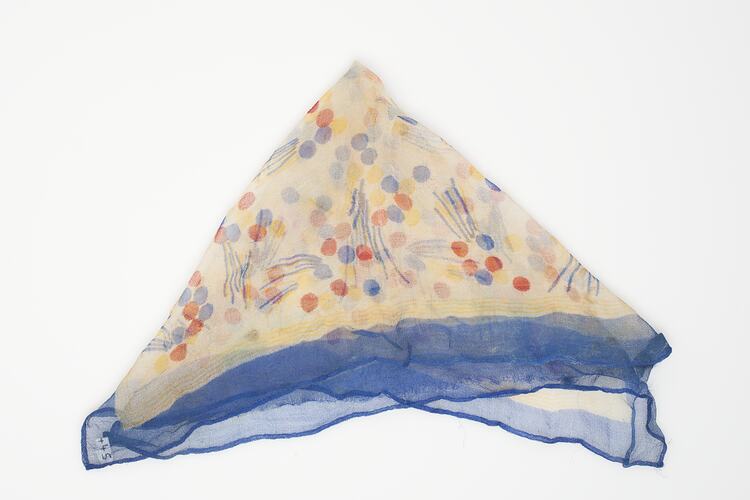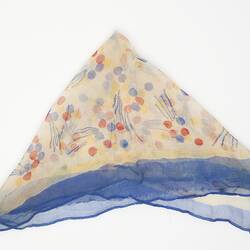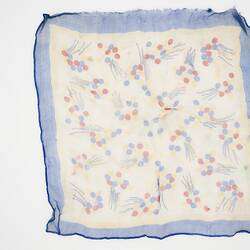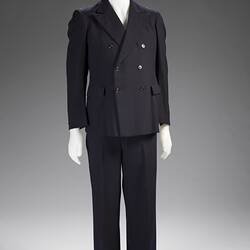Summary
Silk handkerchief, purchased in Wauchope New South Wales in 1944. Part of a suit worn by Albanian immigrant Pandi Thomas for his wedding to Artemissia Hari, which took place in Bagnoo New South Wales in 1944.
Pandi and Artemissia's marriage was arranged through the business contacts of Pandi's brother, who introduced Pandi to Artemissia's father. After Pandi and Artemissia's father had discussed the marriage prospect, the couple met and Artemissia agreed to the marriage, as she was culturally expected to do. They were married in a Greek Orthodox wedding ceremony at Artemissa's family farm house with a priest brought in from Sydney. The couple honeymooned in Kempsey, New South Wales and then returned to Shepparton, where Pandi was living with his brother. They had five children and died within seven weeks of each other in 1995.
Pandi wore the suit for special occasions throughout his lifetime, andIt is unknown whether the handkerchief was part of original wedding outfit or if it was added in later years with subsequent wearing.
Physical Description
Blue, red and yellow spotted silk handkerchief.
Significance
Significance:
While wedding dresses are frequently preserved by families and sometimes offered to the museum, wedding suits are much more rare. This suit provides a male perspective on the wedding ritual - it was carefully selected by the wearer, well cared for and worn on other special occasions throughout his lifetime. The story of Pandi's journey north to find a bride is reinforced by the suit label identifying the vendor and the store location in Wauchope. The object carries a rich narrative, tracing a pre World War II migration experience, regional settlement, arranged marriage, and community cultural maintenance.
More Information
-
Collecting Areas
Clothing & Textiles, Migration & Cultural Diversity, Public Life & Institutions
-
Acquisition Information
Donation from Christine Thomas, 2004
-
Place & Date Purchased
-
User
-
User
-
Classification
-
Category
-
Discipline
-
Type of item
-
Keywords
Albanian Communities, Albanian Immigration, Arranged Marriages, Clothing, Religions: Greek Orthodox, Wedding Costumes, Weddings, World War II, 1939-1945



